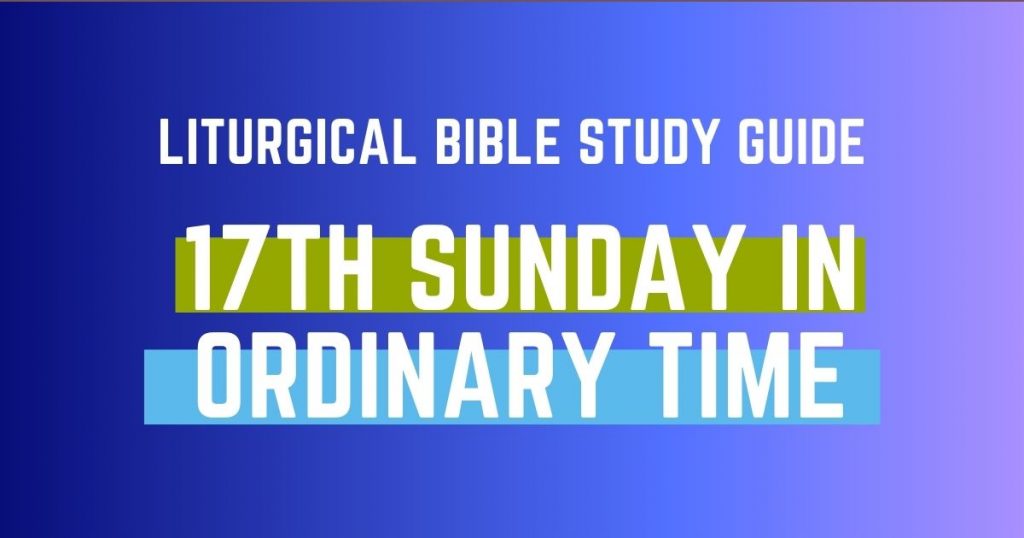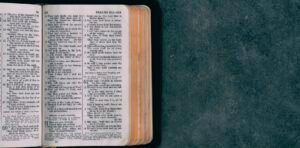1st Reading – 2 Kings 4:42-44
1st and 2nd Kings are really one book which traces the religious heritage of the chosen people from the death of David (the second king, the first having been Saul) in about 970 B.C., through the division of the kingdom into the northern and southern kingdoms, to the downfall of the last king of Judah (Zedekiah) and the destruction of the Temple (586 B.C.).
In fact, the Hebrew Bible until 1517 contained one book which encompassed what we call 1 & 2 Samuel and 1 & 2 Kings. The division of Samuel from Kings occurred in the Greek Septuagint (about 200 B.C.) and Jerome’s Latin Vulgate (A.D. 392-404) followed this form. The Septuagint and Vulgate called what we now know as 1st & 2nd Samuel “1st & 2nd Kings” and what we now know as 1st & 2nd Kings “3rd & 4th Kings”. Some older Catholic Bibles (such as the Douay-Rheims) reflect these 1st through 4th Kings headings.
The time of our reading today is 850 give or take ten years B.C.; during the time of Elisha the prophet. Elisha (means “God has saved”) was called by the prophet Elijah (means “my God is Yahweh”) and has received from him his mantle and a double portion of his prophetic spirit (the double portion is the inheritance of the firstborn son; an indication that although not related by blood, Elisha was Elijah’s spiritual son). Elijah was assumed into heaven in 2 Kings 2:11. Today’s reading is one of the miracles of Elisha, the multiplication of loaves.
2nd Reading – Ephesians 4:1-6
We now skip over Chapter 3 of Ephesians and begin the moral section; the Book of Ephesians having been divided by the scripture scholars into two sections: Dogmatic and Moral. Our reading today is the first part of Paul’s call to unity which encompasses verses 1 through 16.
Gospel – John 6:1-15
At this point in the liturgical calendar we temporarily divert our attention from the Gospel of Mark (the Gospel for this cycle) to the Gospel of John. The gospel readings for this week and the next four weeks will be from John. This week we hear the account of the feeding of the five thousand.





